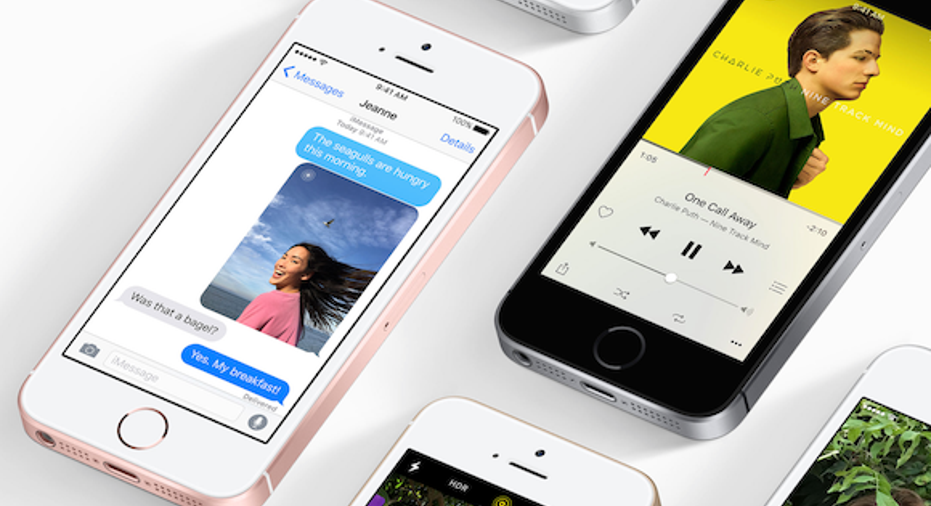Apple, Inc. Had to Get In Bed With Qualcomm Because of Verizon

Image source: Apple.
In the iPhone's early years, Apple (NASDAQ: AAPL) bought baseband modems from Infineon, which was later acquired by Intel. The original iPhone launched as an AT&T exclusive, and AT&T's 3G network is built on GSM. The Mac maker was still paying licensing fees to Qualcomm (NASDAQ: QCOM), as all cellphone makers around the world must, starting in 2007 with the original iPhone.
But things got a lot more complicated in 2011, which is when Apple and Qualcomm really took their relationship to the next level. It's because of Verizon (NYSE: VZ).
It all started because of Big Red
That was the year that Apple finally launched the iPhone on Big Red's network, ending Ma Bell's exclusivity that was costing Verizon subscribers; the iPhone was a powerful exclusive device that compelled many subscribers to switch. From Apple's perspective, Verizon is the largest carrier in the U.S., so of course it wanted access to that subscriber base. Even though Verizon's 3G network uses CDMA, the cellular technology that Qualcomm helped pioneer, and CDMA is less common in other parts of the world, Apple still recognized that it should offer more variants of the iPhone in order to expand its addressable markets worldwide.
It's worth noting here that China, which became the world's largest smartphone market the following year in 2012, also uses CDMA or variants of CDMA for 3G wireless service.
Here's an excerpt from Apple's complaint (emphasis added):
Considering Qualcomm's dominance in CDMA, both in terms of its patent portfolio as well as baseband chips, Apple had no choice but to get in bed with the mobile chip giant. For years, it seemed as if the pair had a strong and mutually beneficial relationship evidenced by ongoing exclusivity. But what we now know is that behind the scenes, Apple was incredibly unhappy but also contractually obligated to keep quiet. The Mac maker now says that it was continuously forced into "undesirable, one-sided, and unreasonable contract terms."
Ultimately, it was still probably worth it, considering the iPhone's multiyear growth run that only just ended in 2016. That growth was fueled by both tapping the largest U.S. carrier as well as expanding internationally, including in China.
10 stocks we like better than Apple When investing geniuses David and Tom Gardner have a stock tip, it can pay to listen. After all, the newsletter they have run for over a decade, Motley Fool Stock Advisor, has tripled the market.*
David and Tom just revealed what they believe are the 10 best stocks for investors to buy right now... and Apple wasn't one of them! That's right -- they think these 10 stocks are even better buys.
Click here to learn about these picks!
*Stock Advisor returns as of January 4, 2017
Evan Niu, CFA owns shares of Apple. The Motley Fool owns shares of and recommends Apple and Qualcomm. The Motley Fool has the following options: long January 2018 $90 calls on Apple and short January 2018 $95 calls on Apple. The Motley Fool recommends Intel and Verizon Communications. The Motley Fool has a disclosure policy.



















